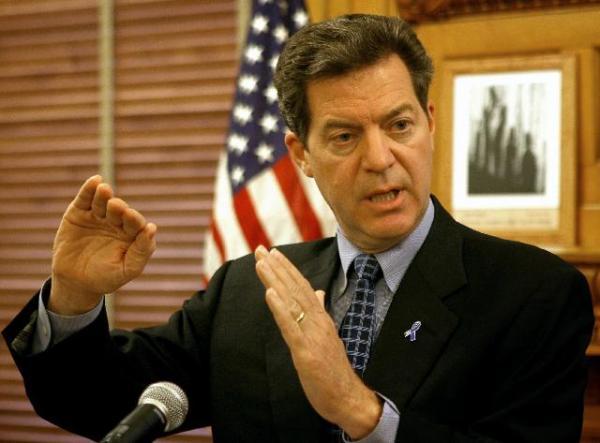Kansas, one of the 26 states that challenged the constitutionality of President Obama’s health care law before the U.S. Supreme Court, is embroiled in controversy over an information technology program that some see as a step toward implementing the insurance exchanges and Medicaid expansion mandated by Obama’s law.
State activists and some Republican lawmakers argue the Kansas Eligibility Enforcement System (KEES), an IT program designed to catch Medicaid fraud, complies almost completely with President Obama’s law. The KEES program, launched in August 2011 as part of Republican Gov. Sam Brownback’s recent Medicaid reforms, is the basis for a $135 million contract with consultant group Accenture—with tasks including the creation of a “means for the public to purchase private sector health insurance, both subsidized and non-subsidized” according to the contract.
According to Rep. John Rubin (R-Shawnee), KEES’s implementation will lead to the creation of a health insurance exchange consistent with Obama’s law. KEES is slated for completion by May 1, 2013, roughly six months before exchanges must be launched.
“By that date they will have done everything to implement all aspects of ObamaCare except the health insurance exchanges,” said Rubin.
Steve Shute, chairman of the Union of Patriots grassroots organization, said Brownback is effectively hedging his bets on Obama’s law.
“I think we found a loophole that most people are overlooking,” Shute said. “It’s pretty insidious stuff.”
Brownback Administration Denies Implementation
Sherriene Jones-Sontag, Brownback’s press secretary, said KEES does not represent state implementation of the health care law.
“Gov. Brownback is helping lead the national fight against the Affordable Care Act from Kansas,” Sontag said, citing Brownback’s rejection of a $31 million Early Innovator grant to create an insurance exchange under Obama’s law.
Brownback stated he returned the federal taxpayer funded grant to Kansas in August 2011 in part because of the strings attached to it. Those requirements were outlined in the advanced planning document (APD) accompanying the grant—but the APD for KEES contains the same language, according to Shute.
“What was startling is there was no material difference between the commitments that Kansas has made in writing to [U.S. Secretary of Health and Human Services] Kathleen Sebelius,” Shute said, comparing the early innovator grant with KEES. “[The document was] in every ounce, every aspect compliant with the 2,700 pages of the PPACA law.”
Jones-Sontag says nothing in the agreement requires creation of a health insurance exchange. She cited the work request published by the administration on August 25, 2011, which reads, “Nothing in this agreement obligates the State of Kansas to develop its own health insurance exchange.”
Wolf in Sheep’s Clothing?
According to Robert Moser, acting secretary of the Kansas Department of Health and Environment, this system is capable of supporting an exchange compliant with Obama’s law.
“We are essentially building a DVD player,” Moser said in an April interview with the Topeka Capital Journal. “So, patient enrollment and eligibility is a DVD disc we can put in there. That insurance exchange is another DVD that can be put into that player.”
Shute says KEES is “a wolf in sheep’s clothing”: preparation for implementation of ObamaCare disguised as an updated IT system designed to prevent fraud, a move intended to prevent the state from losing out on future funding.
“They’re tying future Medicaid funding directly to implementation of the ObamaCare law,” Shute said. “In the case of Kansas, that funding amounts to over $1 billion annually. You can’t govern without money.”
Hedging Kansas’ Bets
Rubin says he does not believe the KEES project amounts to intentional implementation of Obama’s law, but is instead an example of the administration hedging its bets.
“I don’t think it’s intentional,” Rubin said. “There’s no question in my mind the governor is opposed to the Affordable Care Act. It’s just an honest difference of opinion between his staff and me and others.”
But Jones-Sontag says KEES is focused on other, less-controversial goals.
“KEES is a modern Medicaid eligibility system the state of Kansas has been working toward for years,” Jones-Sontag said. “KEES will transition the state from a paper-based eligibility system to a computer-based system that will crack down on fraud and reduce paperwork for needy Kansans.”
Casey Cheney ([email protected]) is a writer and graduate of Hillsdale College.




